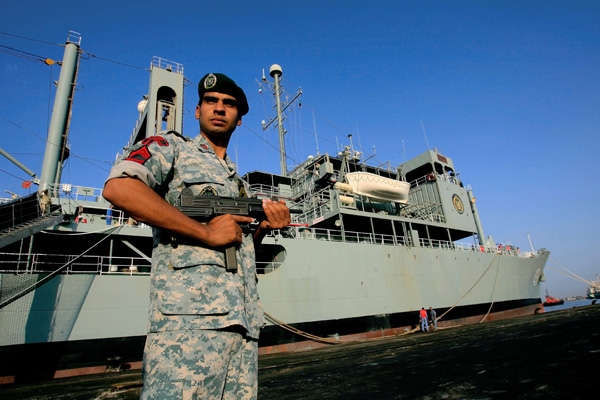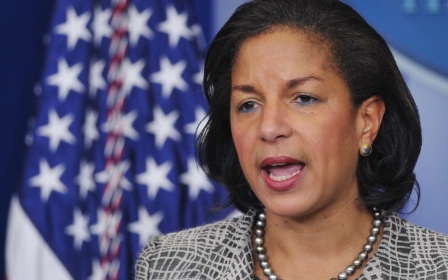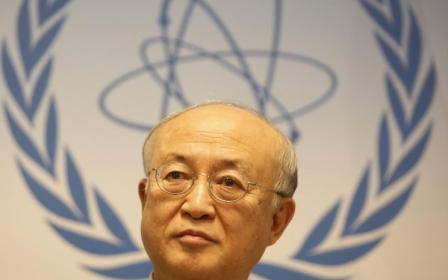Israeli arrested at US request for selling arms to Iran

The Israeli daily Haaretz reported on Monday the arrest of an Israeli national wanted by the United States on charges of selling arms to Iran.
The 64-year-old’s arrest was requested by the US government, who accuse him of engaging in illegal trade with Iran, money laundering and exporting military equipment without a permit for four years.
He is also suspected of illegally exporting spare parts for fighter planes to Iran in contravention of US sanctions.
It is expected that he will be extradited to the US.
According to the arrest warrant the Israeli national, named by the Times of Israel as Eli Cohen, has already served jail time in the US for similar crimes.
New MEE newsletter: Jerusalem Dispatch
Sign up to get the latest insights and analysis on Israel-Palestine, alongside Turkey Unpacked and other MEE newsletters
Cohen’s lawyers have issued a statement saying that "there is no basis for his detention or extradition."
The blogger Meir Javendanfar, a lecturer in contemporary Iranian politics at an Israeli university, speculates that this arrest, the second incident this year of an Israeli being suspected of selling arms to Iran, could be "the tip of the iceberg."
Iran and Israel, though at loggerheads today, once enjoyed close diplomatic ties.
Prior to Iran’s 1979 Revolution, its Western-aligned Shah Mohammad Reza Pahlavi formed an informal strategic alliance with Israel, not least because it represented a counter-weight to communist strands in the region.
For Israel’s part, the policy of befriending Iran fit into Prime Minister Ben-Gurion’s philosophy of appeasing ‘the neighbours of the neighbours’ in an otherwise hostile environment.
Monday’s arrest comes after last week’s visit by Susan Rice, the US National Security Advisor, to Israel.
Last Thursday, Rice arrived in her first visit to the country to discuss Iran’s nuclear programme, among other topics, with her Israeli counterpart Yossi Cohen.
Tuesday will see the ‘P5+1’ powers - the US, Russia, China, the UK, France and Germany - meet for the fourth round of talks, in which it is hoped they will flesh out the details of a permanent agreement regarding Iran’s nuclear facilities.
Peres refused entry to Swedish airspace
The day before alleged arms dealer's arrest at Tel Aviv's Ben-Gurion airport, Israeli President Shimon Peres faced his own airborne tribulations, during an intensive diplomatic tour that has seen him launch state visits to Austria and China in the past six weeks.
On a private flight to Norway, the President’s plane was involved in a debacle with Swedish air-traffic controllers, and was forced to circle for an hour before eventually rerouting through Danish airspace.
It appears that the plane did not have permission to enter Swedish airspace, with authorities reporting that they had no prior knowledge of the aircraft’s presence, and therefore could not allow it to pass.
Haaretz reports that the administrative difficulties caused Peres to arrive 50 minutes late for an official reception at Oslo airport, while the President’s Office estimates the hold-up at closer to a quarter of an hour.
Contrary to custom, the trip was arranged not by the Foreign Ministry but through a private company contracted by the President’s Office.
The affair, according to Haaretz, has left the two official bodies publicly at odds; the President’s Office has blamed the Swedish authorities for their ‘negligence’, while the Foreign Ministry held the private company hired by the Peres’s office accountable.
Middle East Eye delivers independent and unrivalled coverage and analysis of the Middle East, North Africa and beyond. To learn more about republishing this content and the associated fees, please fill out this form. More about MEE can be found here.




